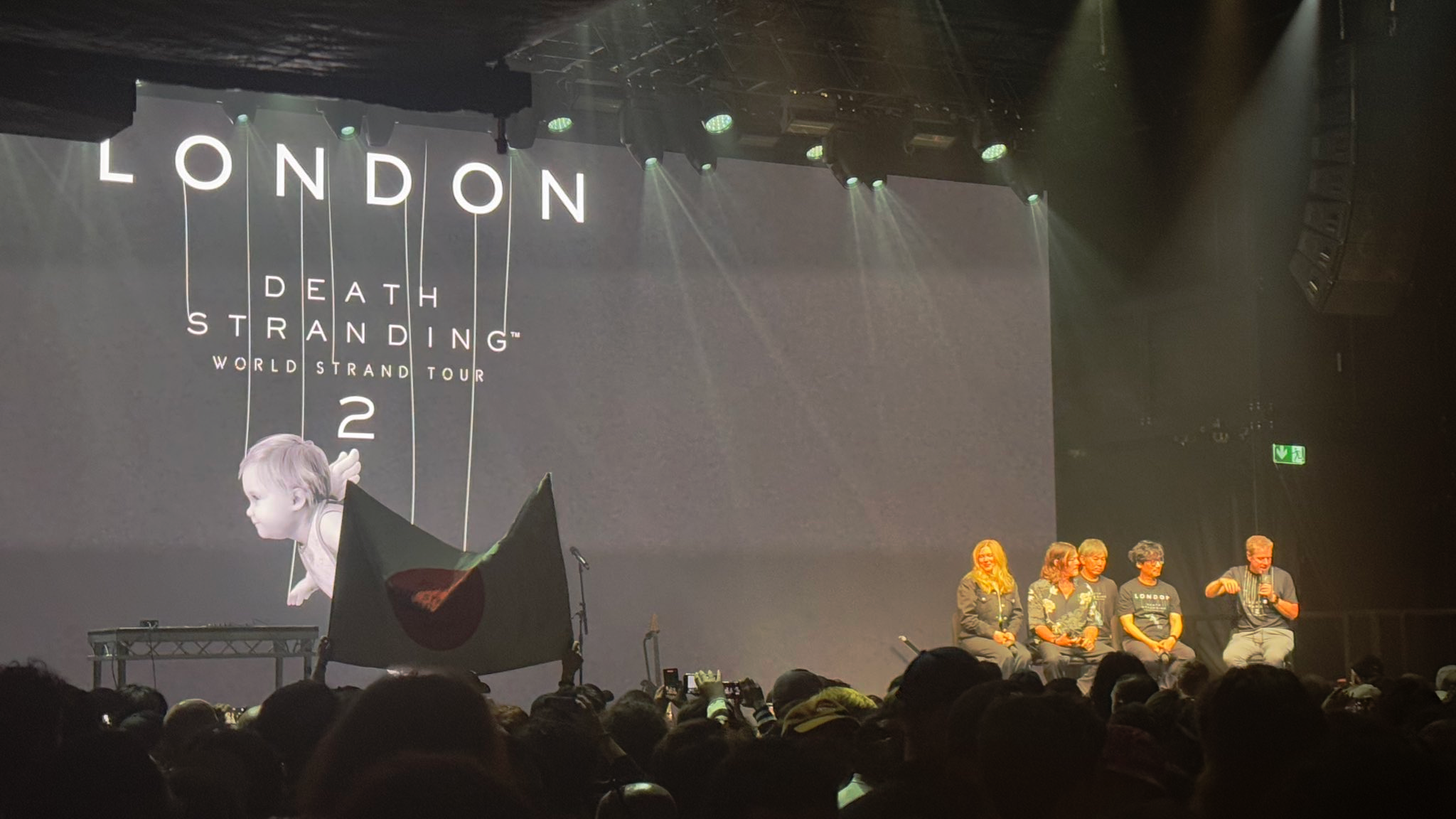Death Stranding: The journeys lost to life on demand
Just before the launch of Death Stranding 2: On the Beach, the latest game from legendary director Hideo Kojima and his team at Kojima Productions, something unusual happened. Tickets started going on sale for small events in Los Angeles, Sydney, Tokyo, Paris, London… 12 locations in total.
I bought mine as much out of curiosity as excitement. What could an event based around a video game possibly entail to make it worth expending the time and money to put on something as elaborate as the World Strand Tour?
I was none the wiser as I arrived at HERE at Outernet, near Tottenham Court Road. As my friend and I descended the stairs, we were surprised to find ourselves at the back of a packed pit. It was a setup more fitting for a gig than a panel discussion. The event description said that Caroline Polachek would perform her song from the soundtrack, but I’d still expected seating.

What followed was a memorable and often surreal hour. Kojima appeared, the fans chanted his name, and after some discussion of the game with host Geoff Keighley, explained that he’d brought some special guests to London with him. Alongside Polachek, these turned out to be Death Stranding 2’s stars, Norman Reedus and Léa Seydoux, as well as the band Chvrches, who performed their song from the first game (and confirmed a new album).
Connecting the world
Kojima always speaks a lot about “connection”, and in the run-up to Death Stranding 2’s release I read several preview articles that explained how he invited the games media to the Kojima Productions offices in Tokyo - a rare move now that review copies of games can be sent over the internet.
“Nobody really does these kinds of events anymore,” he told journalists, according to Edge magazine. “I wanted to bring you all here, to be in the room together, talking, with the chance to make friends with a stranger.”
I’d always been skeptical of this message. It seemed a little vague and cliched, and ironically reminded me of older generations lamenting the popularity of video games. But after attending the London leg of the World Strand Tour, I finally understood what he was going for - and it worked.
From the confused excitement over what was happening as we arrived, to the people near us who spotted designer Yoji Shinkawa on a balcony and got a wave, to the person who showed the panel they were playing the game in the venue on a PlayStation Portal, what Kojima achieved was remarkable. He took a traditionally solitary hobby and turned it into a shared experience.
The missing journey
In the digital age, and especially since the pandemic, online has become the default. Companies show off new products in videos and streams. Sales are made via email and PDF documents. And meetings are video calls by default. In my own job, it is a rare occurrence to meet a customer face to face.
But as Kojima is highlighting, going online-only means that while the content is delivered, the colour is missing. Without the World Strand Tour, I’d still have bought Death Stranding 2, but would it have created a memory I’ll look back on with a friend in a few years? Likely not.
“People don’t just warp from point A to point B,” Kojima said in an X video posted from the tour’s Seoul leg. “On the way from A to B, you unexpectedly encounter things - and that’s what really matters, isn’t it? If you take all that away and rely solely on the internet, something important gets lost.”
"On the way from A to B, you unexpectedly encounter things... If you rely solely on the internet, something important gets lost"
A few days later, it was British Grand Prix weekend. I usually watch Formula 1 at home, and it would have been far more convenient to stay at the flat to rest and tackle some life admin before Saturday’s qualifying session. But I made the effort to get outside, and my wife and I visited Williams and Aston Martin fan events in London before watching the session on a phone in a bar - far more memorable than another afternoon in front of the TV.
I’m currently reading Die with Zero by Bill Perkins. The thought of depleting your savings isn’t a comfortable one, but Perkins’ core argument is that if we hoard our money until our later years then it has less potential to create lasting memories, which is key to living a life you’ll look back on fondly.
Really, it’s not so far from Kojima’s ethos. In 2025, we’re surrounded by digital conveniences and have access to more metrics than ever before that we can use to optimise every small detail of business and life. But what’s really worth optimising for can’t always be measured, and the most efficient route through life doesn’t always yield the greatest happiness.

